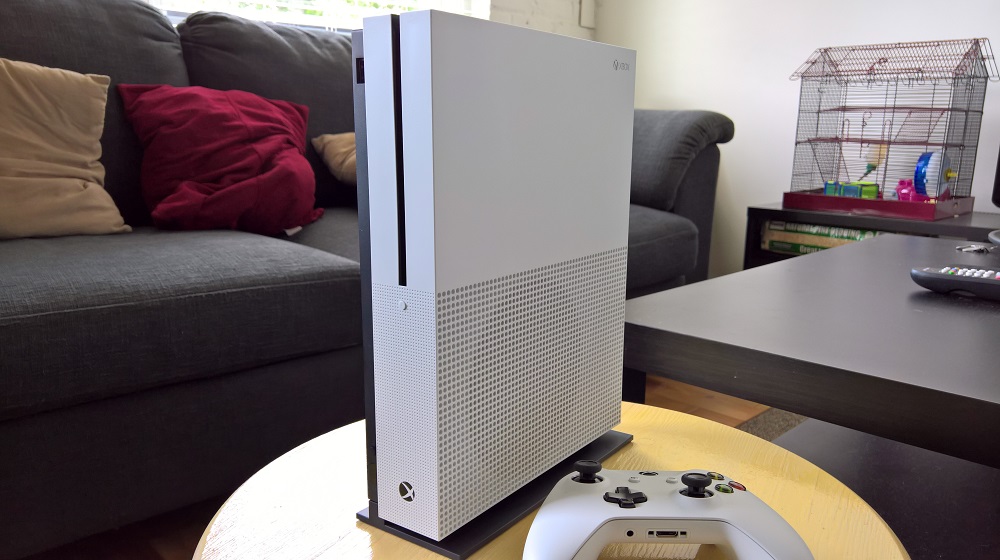When rumors of something as seemingly landscaping altering and exciting as an Xbox cloud console and companion service arrive in your newsreader, there’s a cycle that starts.
Armed with rumors, we all start to take sides. I found myself doing just that earlier this week when I tweeted that an Xbox cloud gaming console just didn’t seem like a good idea. Friends interested and not interested immediately began replying with their thoughts on such a console.
In hindsight, that was exactly the wrong thing to do.
As described by Thurrott, which spawned all these Xbox cloud gaming rumors with a post this past week, Microsoft is working on two next-generation Xbox One consoles. One is a living room console in the traditional sense. Expect to connect it to your TV for the best gameplay and graphics, just like you would the Xbox One X. Allegedly, the second console “is a lower-powered device that is currently planned to ship with the next generation device that is designed for gaming streaming.” Interesting.
According to Thurrott’s sources, this Xbox cloud console will run the same games as the standard Xbox console but use its less powerful processor and other internals to only handle in-game collision detection and input from your controller. A gaming service – probably the Xbox cloud gaming service that Phil Spencer, head of gaming for Microsoft, announced at E3 2018 — will handle everything else.
On those details alone, Xbox fans spent the better part of last week discussing whether they would buy a cloud-powered Xbox. Those people included me because I’ve finished Assassin’s Creed Origins and it isn’t like Just Cause 3 is a real page-turner.
It wasn’t until this morning that I realized what we should be doing instead of tweeting quick takes: asking more questions.
Forget the lag, the biggest problem with streaming anything is your internet provider. Companies like Comcast have tried for years to squeeze more money out of heavy streamers by capping the amount of data they find reasonable. Some providers don’t enforce these caps, but some do. Go over that allotment and you’re left with a big jump in that month’s bill. These are the same companies gating higher connection speeds behind more expensive packages.
A console that relies on communication with Microsoft’s servers plays right into these companies’ hands on all fronts. A game streaming service and Xbox cloud console would add another thing that sucks down data, making it more likely that you’d exceed your data cap or need faster internet access than their most basic packages offer.
Let’s also not forget that internet access sometimes doesn’t work and that a rotten connection would turn this Xbox cloud console into a paperweight. That is, unless Microsoft has a plan to let games gracefully degrade if the console can’t connect to its servers. So far, we haven’t heard any talk of such a system.
The other big question is what will this cost? I ask because like Agent Sadusky told Ben Gates in National Treasure, “somebody’s got to go to jail.”
What I mean is that servers cost money, and it seems highly unlikely to me that Microsoft wouldn’t take the razer + razer blades approach to a cloud gaming console.
Thurrott’s sources believe that the Xbox cloud console will cost a lot less than the next-generation mainstream console. In exchange for that lower price tag, you can count on it being tied to Xbox Live or a cloud gaming subscription forever. Stop paying for this cloud gaming service and you could lose access to your games, just like with Games Pass and Xbox Live Games with Gold.
Remember, Microsoft replaced console sales as a quarterly metric of how Xbox was performing some time ago, choosing to focus on profits and the number of Xbox Live users it has. A cloud console that requires a monthly fee would, in theory, play to these priorities.
I don’t mind telling you that in the first draft of this piece I outright declared an Xbox cloud gaming console and game streaming service are two things I’d never buy. That was an unfair conclusion, just as declaring that you would subscribe to such a service is.
What we should really be doing is taking the time before the hype and glitter of a new console generation arrives to ask serious questions of ourselves and these rumored plans. That way, we’re better prepared for the big questions then we were when the Xbox One was announced.
What might the real cost of an Xbox cloud gaming console be over a full calendar year? What cascade effect would an Xbox cloud gaming console have for our internet bills? What would happen if we suddenly decided we didn’t want to connect to Microsoft’s servers to enjoy our favorite pastime? Would be expected to pay for every gaming on the Xbox cloud console like we do Xbox One, or would this cloud gaming service just give you access to Xbox Game Pass’ library and forever link this console to monthly subscription fees?
To quote Electronic Arts. Challenge everything.
